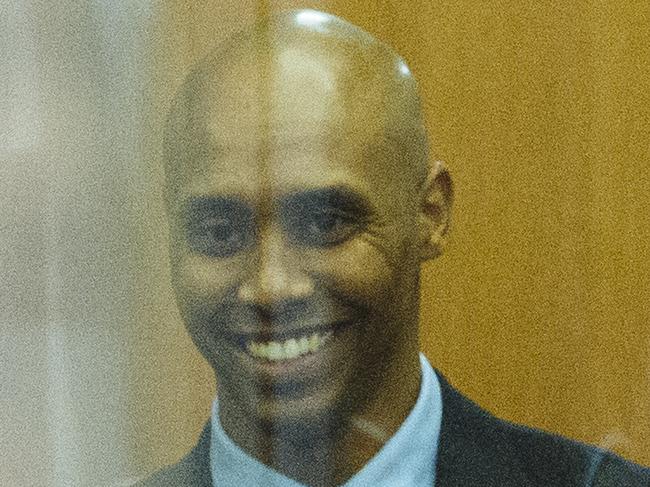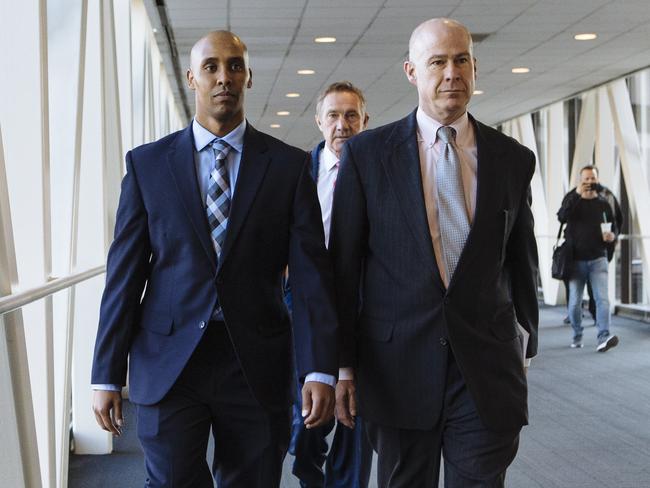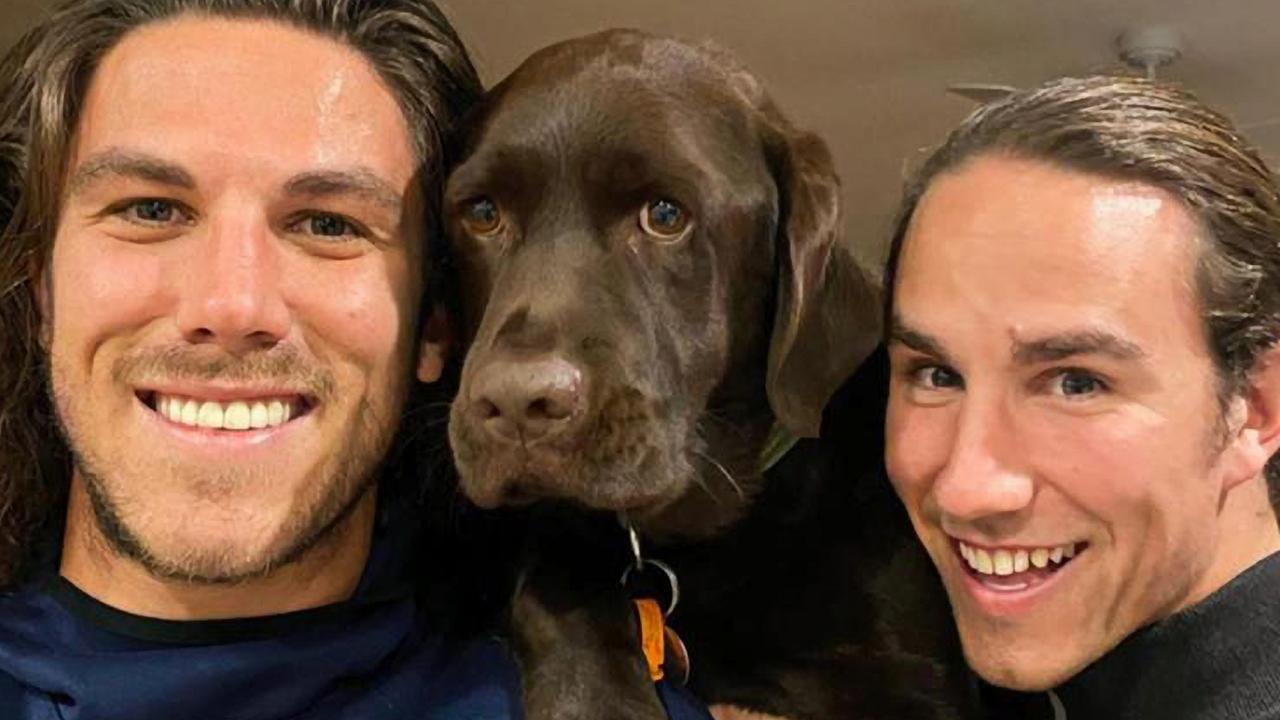Justine Damond shooting case: Judge restricts evidence from public as Mohamed Noor to face trial
The accused cop who shot Justine Damond was seen smiling as he arrived at court, where the judge overseeing the high profile murder trial has been criticised for restricting access to evidence and the court case.
Crime in Focus
Don't miss out on the headlines from Crime in Focus. Followed categories will be added to My News.
The judge overseeing the high profile murder trial of Minneapolis police officer Mohamed Noor has been criticised for restricting access to evidence and the court case.
Judge Kathryn Quaintance has ruled some evidence will not be made public because “it would decidedly not be in the interests of justice”.
She has also scheduled the trial, which begins Monday local time, in one of the Hennepin County Government Centre’s smallest courtrooms, with just eight seats available to the public.
Noor is being tried for second degree murder and manslaughter after shooting dead former Sydney life coach Justine Ruszczyk Damond on July 15, 2017, after she called 911 for help.
The case has drawn significant international attention and community groups are organising protests to coincide with the trial, the first ever murder charge laid against a serving police officer in Minneapolis history.
Brother seals file on Michael Hutchence death secrets
Model arrested as body found in boot
Accused Aussie gunman’s website goes dark

An overflow court room was set up to cater for onlookers, including supporters of Ms Damond’s fiancé Don as well as members of her Australian family, who are understood to be travelling to Minnesota for the trial.
But at Friday’s final pre-trial hearing, the audio feed was often hard to hear.
The ruling sealing evidence prompted local media to argue that it should be shown in open court.
The court heard there would be graphic evidence which may include body camera footage from the moments after Ms Damond died.

Prosecutor Amy Sweasy said it had “evoked a very strong reaction with the grand jury” that decided to push ahead with murder charges.
Judge Quaintance said that it was her intention to screen the footage as well as any medical examiner evidence in a way that would only be able to be seen by the jury.
Minnesota Newspaper Association attorney Mark Anfinson told Associated Press that without a compelling reason, the blocking of access to evidence is unconstitutional.
Judge Quaintance also expressed frustration at the level of attention the case had drawn and questioned whether it would impact jury selection, which starts Monday, local time.
“I already have people telling me every day what they think happened here and we need to be able to pick a jury,” she said.


“You can’t open up a paper or listen to a radio without hearing something about this case.”
Judge Quaintance ruled that the identities of the jury would be kept secret, in order to protect them from the overwhelming public interest in the case. It was also possible they would be sequestered for the duration of the trial, which is anticipated to take several weeks.
She also ruled on several evidence issues ahead of the trial and was to decide in coming days which expert witnesses the state and Noor’s defence will be able to call.
Originally published as Justine Damond shooting case: Judge restricts evidence from public as Mohamed Noor to face trial


